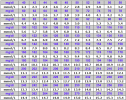brooklyn odalisque
Newbie
- Messages
- 3
- Type of diabetes
- Prediabetes
- Treatment type
- Diet only
My pcp suggested a CGM, so I have been wearing a Freestyle libra 2 for about ten days.it’s clear I can not eat any starch. But my readings are very high in the morning. One night I went super low, down to 60, the meter woke me up. But even when I eat Protein, veggies, it can jump to 170, then drop 30 points in a half hour. I guess I am insulin resistant. How do I get more even readings? will continuing to avoid starch reset eventually?
the first night my glucose went to 230 and I had a panic attack, drinking tons of water, and doing free weights.
I swim and work out.
the first night my glucose went to 230 and I had a panic attack, drinking tons of water, and doing free weights.
I swim and work out.

